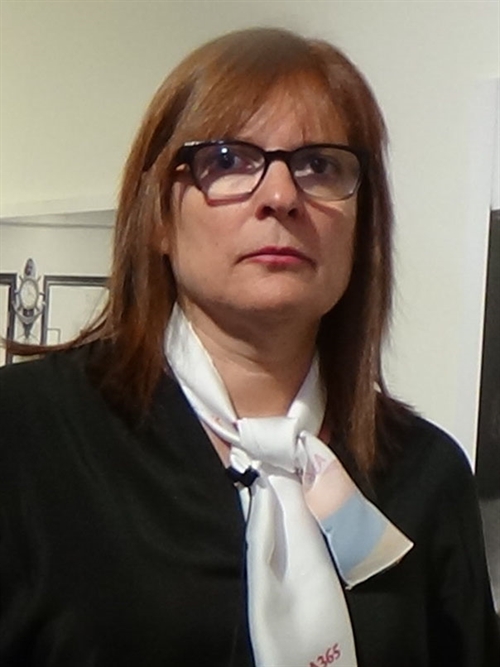 Life & Style
Life & Style

Picturing Autism Vietnam is an ongoing photo exhibition by American photographer Debbie Rasiel at the Vietnamese Women’s Museum featuring people with autism from six countries around the world.
 |
| Photographer Debbie Rasiel |
CULTURE VULTURE
Picturing Autism Vietnam is an ongoing photo exhibition by American photographer Debbie Rasiel at the Vietnamese Women’s Museum featuring people with autism from six countries around the world.
These countries are the United States (US), Mexico, Peru and Iceland, as well as Indonesia.
Rasiel is a photographer and art historian. She has worked for NGOs in New York and South Africa. Her photographs have been shown in many collections, both private and public, including those at Rutgers University, in the US, and the University of Johannesburg in South Africa.
Culture Vulture chats with her about her project:
- What is the message of the exhibition?
- I want people to understand the human element of children with autism, their families, of three generations of families loving their child with autism. They are not different. They have beautiful connections. I hope people would connect with them on a human level… They need to be somewhere, they should not be isolated. They cannot stay home so long with nowhere to go, with no school, no job training, and with no transition programme. They need to be integrated into communities, and into schools, for job training.
Right now in Việt Nam too many of these children have nowhere to go, nowhere to be. I am hoping that by showing families and children in a few centres, in a few schools that parents will take up the responsibility of their studies. There are people who love them and are willing to help them but that is not enough for them. Families cannot do it all.
I am hoping that this exhibition will make people aware of the situation. And for people who do not understand and have never seen a child with autism, and families dealing with a child with autism, it will try to open their minds and their hearts. That is the point of the exhibition.
- What have you discovered when doing the project?
- For me, this is the sixth country that I have travelled to. Although the languages are different all over the world, for the languages I have a translator, or I have an interpreter. The interpreter kind of fell away, as everywhere I go we speak an international language – the international language of autism. We all feel the same concern, face the same struggle. We all worry about what would happen to our child when we are gone, who is going to love them, who is going to take care of them. It is all the same language. It does not matter that we are divided by actual borders, social economics, or resources. It is the language of autism.
- What do you think about Việt Nam?
- Việt Nam is a very interesting place for me in terms of potential. There are resources here. There is so much inherent intelligence. The people are smart. Their justice and their possibilities are here for help, for community support. I can see it, I can see the intelligence, and I can see every kind of support they could put in place. The government would just open up for this. So that is why it is a very interesting country to try to make something different.
I think people in Việt Nam are very kind. That is my impression. I think people should know what autism is and open their hearts, because there is no awareness. On the one hand, you have very high level of resources, and intelligence, but on the other, the awareness is very low. The gap needs to close. Everyone here is so kind and I hope when you see these connections, the love here will respond to that, and the kindness will connect to knowing what autism is.
For me Việt Nam is as special as an extended family and how much grandparents’ care of their grandchildren. I think it is a very beautiful connection.
I talk to families a lot. I have become known not for just taking photos. It is really important that I show them all photos when I finish so that if I misunderstand something, they will let me know.
- Please tell me about your son, who is autistic!
- In the US we have special homes for autistic people. And my son is there. He is 25. He has a job there and is very happy. I hope there will be such services in Việt Nam soon. – VNS




